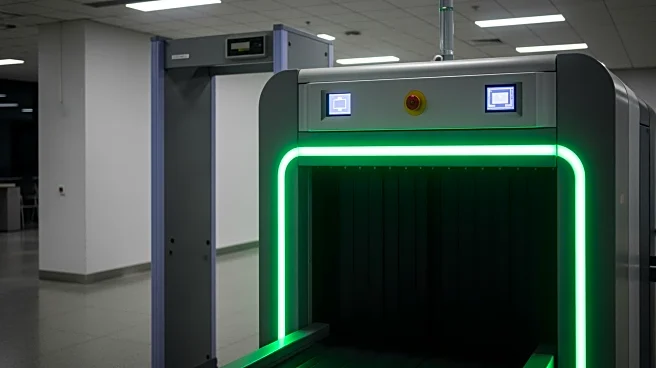What's Happening?
Vice President JD Vance addressed the media outside the White House, emphasizing that Americans should not be concerned about flying during the ongoing government shutdown. Vance's comments come as the shutdown continues to affect various government operations,
raising concerns about the potential impact on air travel safety and security. The Vice President reassured the public that essential services related to air travel, including air traffic control and airport security, remain operational despite the shutdown. Vance's statement aims to alleviate fears and ensure confidence in the safety of air travel during this period.
Why It's Important?
The Vice President's reassurance is crucial as the government shutdown has led to widespread uncertainty about the continuity of essential services. Air travel is a critical component of the U.S. economy, affecting millions of passengers daily. Ensuring the safety and security of air travel during a shutdown is vital to maintaining public trust and preventing disruptions in travel plans. The statement from Vice President Vance seeks to prevent panic and maintain stability in the aviation sector, which could otherwise face challenges due to reduced staffing and resources.
What's Next?
As the government shutdown persists, further statements and actions from government officials are expected to address public concerns and ensure the continuity of essential services. Stakeholders in the aviation industry, including airlines and airport authorities, may collaborate with government agencies to mitigate any potential disruptions. The administration may also face pressure to resolve the shutdown to restore full government operations and services.
Beyond the Headlines
The ongoing government shutdown highlights the broader implications of political stalemates on public services and infrastructure. It raises questions about the resilience of critical systems and the ability of government agencies to function effectively under constrained conditions. The situation may prompt discussions on contingency planning and the need for robust mechanisms to safeguard essential services during political impasses.
















